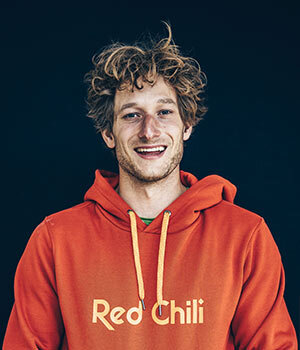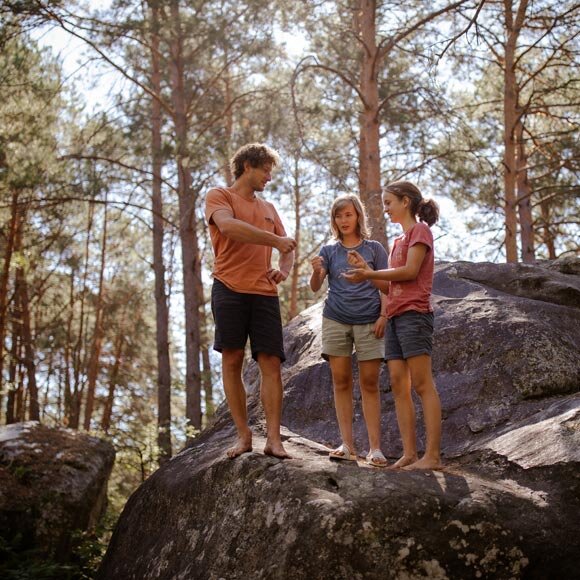When and how did you get into climbing and what kept you interested / fascinated in the sport?
I must have been seven years old when my father took me climbing for the first time. 23 years later, I'm still just as passionate about this sport. I've never had a motivation problem during my "career". Because climbing is so incredibly versatile.
What interests me for the future are the ways in which climbing can be combined with other sports. The basic tenor here is: How can I get to the rock in the most environmentally friendly way possible? That opens up totally exciting project ideas!
Who was your childhood hero and do you consider yourself a role model now? Does it influence you at all that other people look up to you?
Stefan Glowacz was my great role model.
Because my brother and I have been involved in German climbing for so long, people know us in a certain way: "Haja, there are the Hans brothers!"
Ninja Warrior has made us even better known. Children and young people name my brother and me as their role models. So, to come back to the question. Yes, in a way, I now see myself as a role model for others. It doesn't really influence me. Rather, I think it's great to have the opportunity to bring children and young people closer to climbing and the values associated with it, such as solidarity and closeness to nature. That's exactly my goal with the Young Talents.
What were the most important milestones in your life so far, both in climbing and in everyday life? Did you immediately recognize them as such or only later on?
- Milestone 1: Without my brother, neither of us would be in the position we are in today. We were always the best training partners and pushed each other without any jealousy
- Milestone II: Good home coaches and the Baden-Württemberg state squad
- Mileston III: Red Chili testimonials & Stefan Glowacz. Without Red Chili, Stefan would never have become aware of me. He encouraged me to pursue a professional climbing career
- Milestone IIII: The Greenland expedition. The starting signal for the professional athlete
- Milestone V: My two daughters Heli & Lilo
What were your greatest failures / setbacks / injuries? How did you cope with them and how did you come back from them?
I've never had any serious injuries in my life, but I've often struggled with the fact that I couldn't perform freely in pressure situations, for example during a competition. Admitting this to myself took some time. I was able to free myself from this through mental training.


